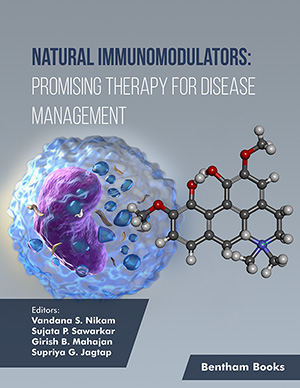Abstract
The availability of appropriate animal models is essential for effective
translation of immunomodulatory research into clinical settings. Bioassays and other
methods for immunomodulators in the preclinical and clinical setting are being used to
assess the quality and quantification of the immune response, find the best suitable
route of administration and formulation method, protect the transmission of infection,
and assess the safety and toxicity of immunomodulators. Identifying the appropriate
animal model has become very important, since each model has its own pro's and cons.
The scope of this chapter is to outline the assaying of immunomodulatory activity, the
approaches and the experimental strategies. This chapter discusses various in-vitro
models such as cell lines, assays and murine models, which are being used for
quantification of the immune response, assessment of overall immune functions,
immunosuppressive activity, screening of anti-allergic drugs and agents used in the
treatment of various autoimmune disorders and transplant-related and autoimmune
diseases. The most important questions that we should keep in mind while choosing a
suitable animal model are, selection of suitable species, physiological relevance of
model, immunological functions to be evaluated, and its practical implications.
Keywords: Adaptive Immunity, Immune System, Immunomodulation, Innate Immunity.






















